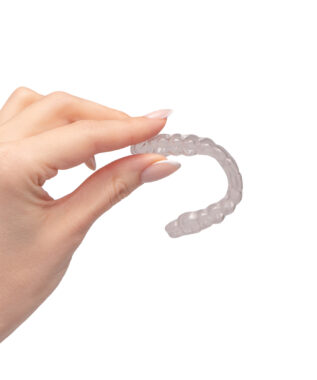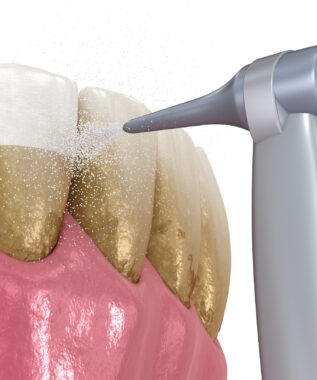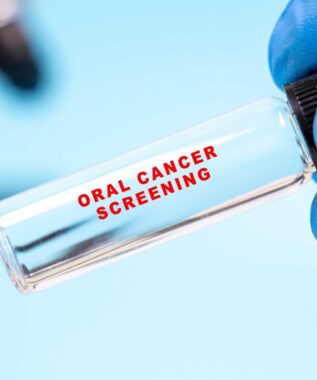 Many people recognize that losing one or more teeth is a problem, and that replacing their lost teeth is important to the state of their oral health. However, there is much about tooth loss that people often misunderstand, even if they’ve already experienced it. This can include the fact that tooth loss is often preventable, and that when it does occur, how you choose to replace your lost tooth or teeth can have serious implications for your long-term oral health. (more…)
Many people recognize that losing one or more teeth is a problem, and that replacing their lost teeth is important to the state of their oral health. However, there is much about tooth loss that people often misunderstand, even if they’ve already experienced it. This can include the fact that tooth loss is often preventable, and that when it does occur, how you choose to replace your lost tooth or teeth can have serious implications for your long-term oral health. (more…)
How to Treat a Cracked Tooth Conservatively
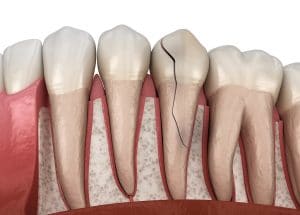 The focus on conservative dental treatment is important for many different reasons. When it comes to your comfort and convenience, designing your treatment to be minimally invasive helps make your overall dental treatment easier to manage. In terms of your long-term dental health, conservative treatment means minimizing any changes to your healthy tooth structure to things that are absolutely necessary. Today, we examine what conservative treatment looks like when addressing a common concern such as a cracked tooth, and how we can help you restore and preserve your tooth with optimal results. (more…)
The focus on conservative dental treatment is important for many different reasons. When it comes to your comfort and convenience, designing your treatment to be minimally invasive helps make your overall dental treatment easier to manage. In terms of your long-term dental health, conservative treatment means minimizing any changes to your healthy tooth structure to things that are absolutely necessary. Today, we examine what conservative treatment looks like when addressing a common concern such as a cracked tooth, and how we can help you restore and preserve your tooth with optimal results. (more…)
Choosing Invisalign® for the Right Reasons
 There are many less-than-ideal reasons why older teeth and adult patients might hesitate to choose straightening their crooked teeth. For example, some may hesitate out of worry about how the placement of traditional braces may impact their smiles’ appearance and their overall confidence. The problem is that hesitating to straighten crooked teeth may only make the problem worse, leading to more severe oral health concerns and the potential need for more extensive treatment. Fortunately, many people can avoid having to get used to traditional metal braces by choosing Invisalign® clear aligners, instead. (more…)
There are many less-than-ideal reasons why older teeth and adult patients might hesitate to choose straightening their crooked teeth. For example, some may hesitate out of worry about how the placement of traditional braces may impact their smiles’ appearance and their overall confidence. The problem is that hesitating to straighten crooked teeth may only make the problem worse, leading to more severe oral health concerns and the potential need for more extensive treatment. Fortunately, many people can avoid having to get used to traditional metal braces by choosing Invisalign® clear aligners, instead. (more…)
Improve Your Chances of Avoiding Stained Teeth
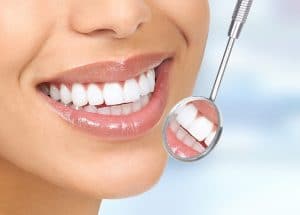 If you notice that your smile has lost some of its youthful glow, it may be concerning. The good news is that most cases of teeth stains are relatively minor concerns that don’t significantly threaten your oral health. However, they can have a significant impact on your smile’s appearance, and the longer they remain, the greater than impact can be. Fortunately, you can take steps to keep your smile bright and stain-free longer and avoid the need for teeth-whitening or other cosmetic dental treatment. (more…)
If you notice that your smile has lost some of its youthful glow, it may be concerning. The good news is that most cases of teeth stains are relatively minor concerns that don’t significantly threaten your oral health. However, they can have a significant impact on your smile’s appearance, and the longer they remain, the greater than impact can be. Fortunately, you can take steps to keep your smile bright and stain-free longer and avoid the need for teeth-whitening or other cosmetic dental treatment. (more…)
What Can a Veneer Do to Fix Your Smile?
 For many people who exhibit certain types of cosmetic concerns with their smiles, especially multiple concerns on several teeth, porcelain veneers are often the ideal solution. The highly lifelike cosmetic appearance of porcelain veneers makes them virtually indistinguishable from your healthy, natural tooth structure. Also, their ultra-thin construction make them a minimally invasive solution to addressing multiple different smile concerns at once. For some patients, however, porcelain veneers offer more benefits than just a highly cosmetic appearance. In some situations, a custom-made veneer may also be the most appropriate solution for repairing a tooth that’s structurally damaged or compromised. (more…)
For many people who exhibit certain types of cosmetic concerns with their smiles, especially multiple concerns on several teeth, porcelain veneers are often the ideal solution. The highly lifelike cosmetic appearance of porcelain veneers makes them virtually indistinguishable from your healthy, natural tooth structure. Also, their ultra-thin construction make them a minimally invasive solution to addressing multiple different smile concerns at once. For some patients, however, porcelain veneers offer more benefits than just a highly cosmetic appearance. In some situations, a custom-made veneer may also be the most appropriate solution for repairing a tooth that’s structurally damaged or compromised. (more…)
Things to Avoid to Preserve Your Tooth Filling
 As the most common dental condition to affect people’s smiles, tooth decay may become a problem at some point throughout your dental health care. If it does, then the good news is that you have a good chance of treating it before it has a chance to become a more serious problem. Treating mild to moderate tooth decay can be both effective and discreet with the help of a custom-designed, tooth-colored dental filling. However, the tooth in question can still be vulnerable to tooth decay after it’s received the filling, and ensuring the success of your treatment will require caring for your teeth and restoration properly in the future. (more…)
As the most common dental condition to affect people’s smiles, tooth decay may become a problem at some point throughout your dental health care. If it does, then the good news is that you have a good chance of treating it before it has a chance to become a more serious problem. Treating mild to moderate tooth decay can be both effective and discreet with the help of a custom-designed, tooth-colored dental filling. However, the tooth in question can still be vulnerable to tooth decay after it’s received the filling, and ensuring the success of your treatment will require caring for your teeth and restoration properly in the future. (more…)
Understanding Your Need for Tooth Extraction
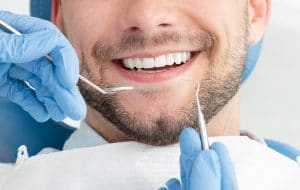 When it comes to treating your smile, it’s important to understand the specifics of your treatment and, more importantly, the reason why you need it. The more you know about your dental health, the more prepared you’ll be to care for your restoration and ensure its success. If your dental treatment includes tooth extraction, then understanding the need to remove your tooth can be even more important. Tooth extraction is usually recommended only in severe cases of tooth trouble. Knowing this means you’ll be more inclined to take the recommendation seriously and extract the tooth as soon as possible. (more…)
When it comes to treating your smile, it’s important to understand the specifics of your treatment and, more importantly, the reason why you need it. The more you know about your dental health, the more prepared you’ll be to care for your restoration and ensure its success. If your dental treatment includes tooth extraction, then understanding the need to remove your tooth can be even more important. Tooth extraction is usually recommended only in severe cases of tooth trouble. Knowing this means you’ll be more inclined to take the recommendation seriously and extract the tooth as soon as possible. (more…)
How Can You Tell if Your Tooth Needs Root Canal Treatment?
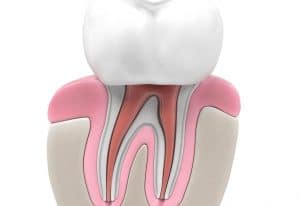 Typically, the good thing about tooth decay is that it can often be treated with a minimally invasive procedure, such as filling the cavity that it’s caused. However, more severe cases of tooth decay require a more involved solution, such as root canal treatment, to address the more invasive nature of the problem. Today, we take a look at what severe tooth decay means, the signs that root canal treatment may be necessary, and how the treatment can save your tooth from more serious problems. (more…)
Typically, the good thing about tooth decay is that it can often be treated with a minimally invasive procedure, such as filling the cavity that it’s caused. However, more severe cases of tooth decay require a more involved solution, such as root canal treatment, to address the more invasive nature of the problem. Today, we take a look at what severe tooth decay means, the signs that root canal treatment may be necessary, and how the treatment can save your tooth from more serious problems. (more…)
Things that Could Be the Result of a TMJ Disorder
 The symptoms that can sometimes develop from TMJ (temporomandibular joint) disorder aren’t always obviously connected to your jaw health. Though the condition directly impacts the health and function of your jaw joints, the results of it can include discomfort in areas throughout your head, neck, face, shoulders, and more. Today, we explore a few of the things that could be the result of a TMJ disorder, and that might warn you of the dysfunction if you don’t already know you have it. (more…)
The symptoms that can sometimes develop from TMJ (temporomandibular joint) disorder aren’t always obviously connected to your jaw health. Though the condition directly impacts the health and function of your jaw joints, the results of it can include discomfort in areas throughout your head, neck, face, shoulders, and more. Today, we explore a few of the things that could be the result of a TMJ disorder, and that might warn you of the dysfunction if you don’t already know you have it. (more…)
How to Successfully Address a Bruxism Problem
 Bruxism, which describes a subconscious habit of grinding your teeth together, can be problematic for several different reasons. Yet, the problems become even more serious the longer it takes to address the condition, and the specific treatments necessary to recover from it can become more extensive. Today, we examine how to successfully address a bruxism problem early, and why it’s important to ensure that the problem doesn’t continue to impact your tooth structure and oral health. (more…)
Bruxism, which describes a subconscious habit of grinding your teeth together, can be problematic for several different reasons. Yet, the problems become even more serious the longer it takes to address the condition, and the specific treatments necessary to recover from it can become more extensive. Today, we examine how to successfully address a bruxism problem early, and why it’s important to ensure that the problem doesn’t continue to impact your tooth structure and oral health. (more…)




